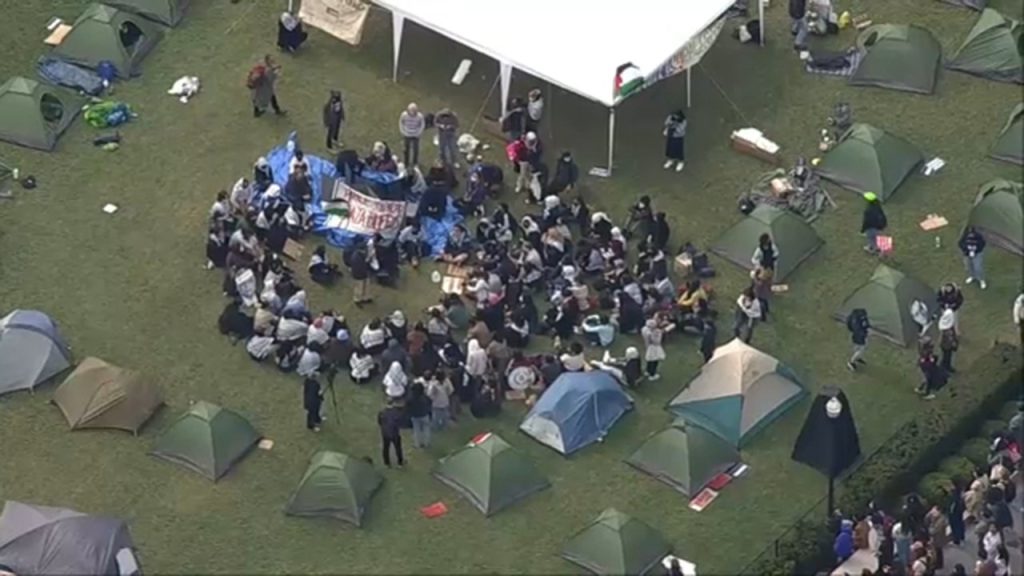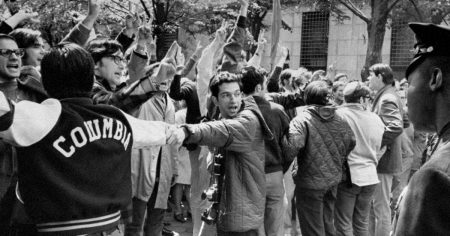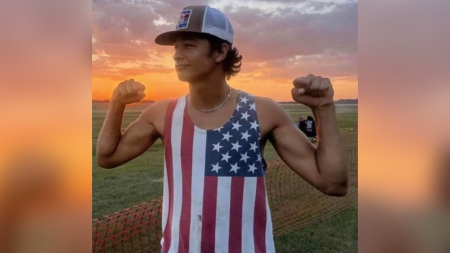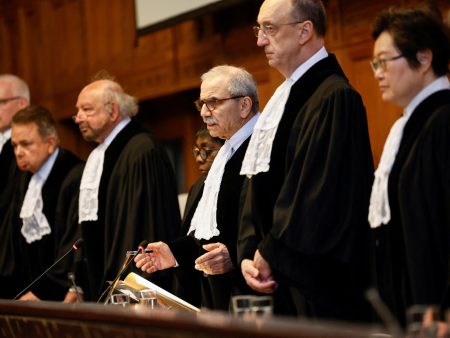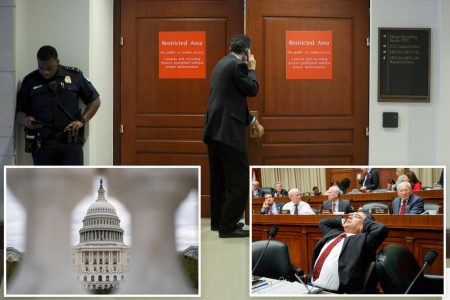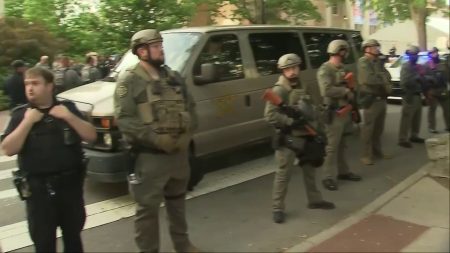Dozens of anti-Israel protesters camped out in tents on Columbia University’s south lawn, calling on the school to divest from companies with ties to Israel. University president Minouche Shafik was in Washington, D.C., to testify before Congress about antisemitism on campus. Protesters were violating university policies and causing safety concerns by occupying the lawn, and the university spokesperson informed them that they needed to leave for their own safety and the operation of the university. This incident is part of a long tradition of anti-apartheid activism at Columbia that dates back more than 60 years.
Shafik and her colleagues were summoned to testify before the House Committee on Education and the Workforce regarding their efforts to combat campus antisemitism, which has increased in the U.S. since October 7. Columbia recently banned two student groups, Students for Justice in Palestine and Jewish Voice for Peace, for violating university policies against harassment. Shafik wrote in a Wall Street Journal op-ed that the university’s challenge is to balance the free speech rights of protesters with the need to create a supportive environment free of fear, harassment, and discrimination. Prominent universities such as MIT, Harvard, and the University of Pennsylvania have also faced congressional scrutiny for rising antisemitism.
In December, the presidents of MIT, Harvard, and the University of Pennsylvania testified before Congress, and the leaders of Harvard and UPenn have since resigned. Students from campuses across the country have testified about increasing incidents of antisemitism at universities, including Harvard, Columbia, and UC Berkeley. Shafik emphasized the need to protect the rights of all students while ensuring a safe and supportive environment for the entire community. The protests and bans on student groups highlight the challenges facing universities in addressing antisemitism and maintaining free speech on campus.
The protests at Columbia come amid a broader trend of rising antisemitism on college campuses and a growing focus on combating bias and discrimination. Shafik and her colleagues were on Capitol Hill to address these issues and discuss the steps the university is taking to combat antisemitism. The incidents at Columbia, Harvard, and other schools underscore the importance of creating inclusive and supportive environments for all students, while also protecting free speech rights. The university’s efforts to balance these competing interests reflect a broader national conversation about the challenges of addressing antisemitism and other forms of discrimination in higher education.
The incident at Columbia University’s south lawn is just one example of the ongoing activism and protests surrounding Israel and antisemitism on college campuses. The presence of protesters on campus during Shafik’s congressional testimony highlights the complex issues universities face in balancing free speech rights with the need to create a safe and supportive environment for all students. The protests at Columbia and other schools are part of a broader conversation about rising antisemitism in the U.S. and the challenges of combating discrimination and hate speech in higher education. The incidents at Columbia, Harvard, and other universities underscore the importance of addressing these issues and creating inclusive and supportive communities on campus.




